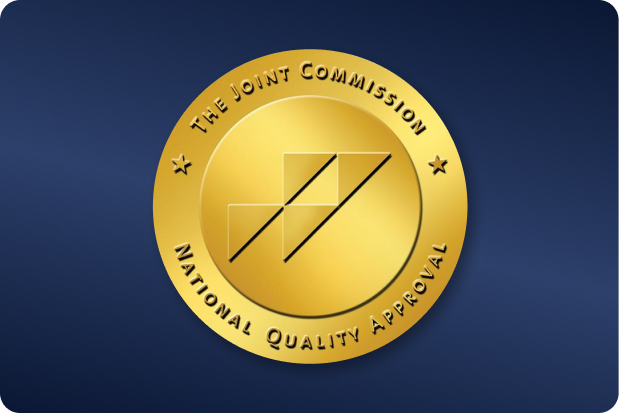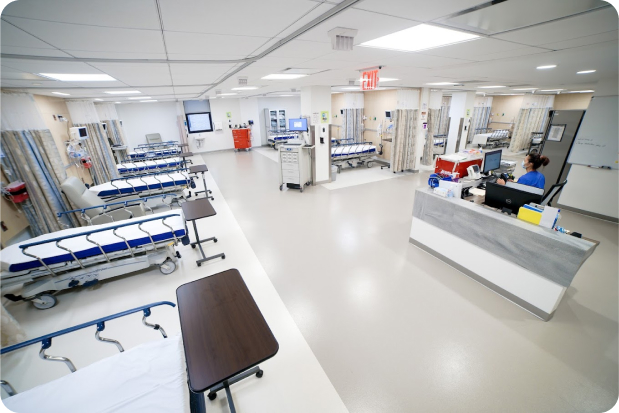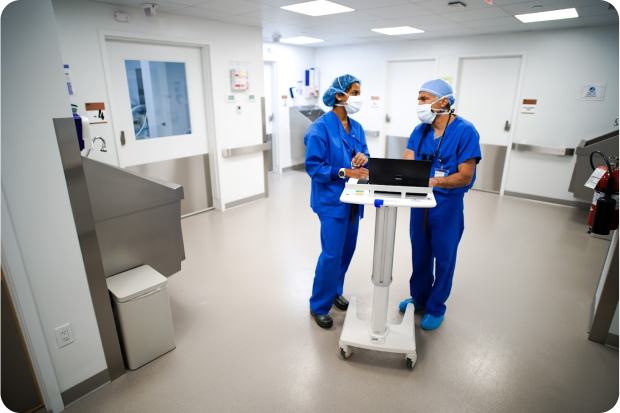 OUR LOCATIONS
Call to book 201.523.9590
OUR LOCATIONS
Call to book 201.523.9590
 OUR LOCATIONS
Call to book 201.523.9590
OUR LOCATIONS
Call to book 201.523.9590
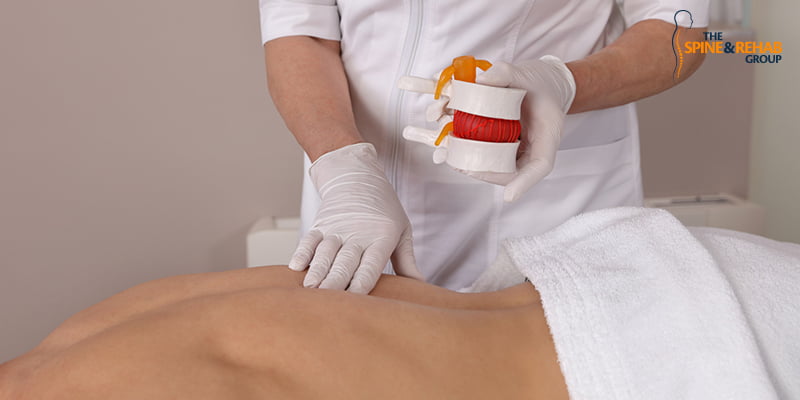
Herniated disc symptoms can vary depending on the patient, but one of the most common manifestations is low back pain. Even mild herniated disc pain can result in unpleasant side effects like frequent muscle spasms or joint pain – which is why plenty of patients seek acute or chronic pain relief from a herniated disc.
So what are your options for herniated disc pain relief? This will usually depend on the severity of your herniated disc pain, and the advice of your medical provider. Most lumbar herniated disc pain usually resolves within a few weeks – but there are also nonsurgical treatment options that you can consider if you want to speed up the process.
The reason why herniated discs (or slipped discs) cause so much acute pain is that they usually press on a spinal nerve in your spinal column, especially with lumbar disc herniation. As a result, most treatment options for herniated disc pain revolve around relieving the pressure from your spinal cord.
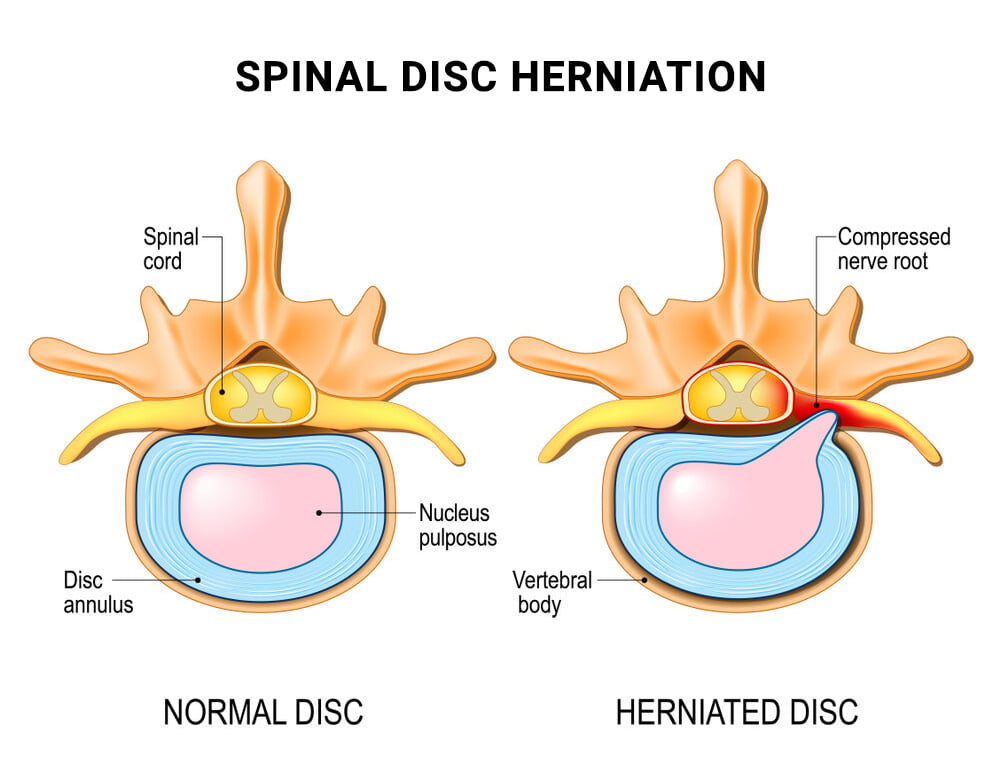
One of the most effective ways to treat acute pain and other symptoms from a herniated disc – especially if they’re affecting the body in other ways like leg pain or shoulder pain – is with pain medication. Depending on the severity of your injury, you don’t need anything too intense for this type of treatment – even medications like ibuprofen or naproxen can work.
However, if you are experiencing muscle spasms or pain from your sciatic nerve, a muscle relaxant or nerve pain medications like tramadol can help relieve the symptoms from your injured disc. However, keep in mind that these often require a doctor’s prescription and should never be used without their approval.
While pain medications may be effective, the important thing to keep in mind is that you should never take them longer or in more doses than prescribed. Because of the strength of these pain medications, unauthorized use can result in serious complications or medication addiction.
For cases of mild herniated disc pain, a physical therapist can help relieve your symptoms with a series of exercises or routines that can relieve the pain in your spinal nerve. These exercises can range from simple stretches to more complex routines like aerobics – ideally under the supervision of your physical therapist.
Physical therapy can also include treatments like hot and cold therapy, ultrasound treatment, or mild electric muscle stimulation. These can be done on their own or in combination with therapeutic exercise, especially when prescribed by your medical provider.
Patients can only use physical therapy to relieve the symptoms of herniated disc pain: they’re not meant to be the primary treatment to get rid of your herniated disk. Only relying on physical therapy can lead to nerve root problems – and while it may get rid of the pain, it won’t do much to improve your actual condition.
If physical therapy and pain medication doesn’t help with your herniated disc pain, your medical provider can inject steroids into your spinal column. This causes the swelling from your disc injury to go down, relieving the pressure from your spinal nerve and reducing the likelihood that you’ll experience acute or chronic pain.
An epidural injection requires expert treatment and diagnosis before being administered to a patient – you’ll need to report for tests like X-rays or CT scans before you get cleared for an epidural injection. Your doctor will also need to scan your patient info to make sure that the steroids don’t trigger any adverse effects in your body.
As far as pain management methods are concerned, an epidural injection is one of the most effective ways you can relieve the pain from a herniated disk. However, keep in mind that this can only work for a while. If you’re looking for chronic pain relief, you may require more than one epidural procedure.
If the injury to the spinal disc is traumatic enough or the symptoms don’t respond well to all other treatments, your doctor may consider a surgical procedure for pain management. This is normally considered a last resort, as the delicate structure of the spine means that any surgery performed has to be done extremely carefully.
You can get something that’s called a discectomy, where the damaged disc itself is removed from your spinal column to relieve the pressure and swelling on your spinal nerve. They can also remove the small bone that protects the spinal disc in a procedure called a lumbar laminotomy to relieve pressure on a sciatic nerve or manage issues like leg pain.
For advanced cases (or if there are pre-existing conditions), a surgeon may also replace the spinal discs with artificial discs made of plastic or metal. These replacements will keep your spinal cord protected while also allowing you full mobility.
In many circumstances, it’s actually all right to let your herniated disc heal on its own. Unless your herniated disk is actively causing you a symptom that you can no longer deal with on your own, bed rest is more than enough to let your body heal.
Some things you can do while you rest include:
However, it’s still important to get yourself looked at by a medical professional before you use bed rest as a treatment for herniated disk pain: it could be possible that the injury could have affected your spinal cord in other ways. Because of the variety of degenerative diseases that can affect the spine, it’s always best to go to a doctor after getting any sort of injury.
Even after your herniated disc heals, it is still important to be conscious of your habits and lifestyle and cut down on any potential risks that can impact your spinal health again. Here are a few tips that you should follow:
Even if you’ve never experienced a spinal injury in your life, it’s usually a good idea to get a general health and wellness checkup to make sure that you aren’t at risk of getting a herniated disk. Often, these early checkups can detect conditions that put your spine at risk even before they start manifesting a symptom.
This is especially crucial if you’re over the age of 40 and/or have pre-existing conditions since early screening can often help you mitigate the more serious side effects of a herniated disc. More than that, it also gives your doctor an idea of procedures or treatments that they can give you for general acute or chronic pain relief.
One of the reasons why a herniated disc can become more of a risk for people is because our lifestyles these days can be very sedentary. Sitting down for long periods, poor posture, and other activities that put a lot of pressure or make the spine more inflexible can all contribute to getting a herniated disc.
Staying physically active – even with simple routines, like taking frequent walks – can be a great way to limit the possibility that you’ll get a herniated disc if you ever suffer an injury to the spine. It can also help relieve low back pain and joint pain, especially if you’re following a therapeutic exercise.
Smoking and putting on excess weight don’t stop at affecting your appearance: they can harden the arteries and put more stress on your skeletal system, which makes you more likely to experience injuries like a herniated disc or even a ruptured disc.
Again, this is especially crucial if you happen to be over the age of 40, though certain pre-existing conditions or heavy smoking and obesity can make you more at risk earlier in life. Like most conditions, simply living healthily can go a long way to keeping your spinal discs in good health.
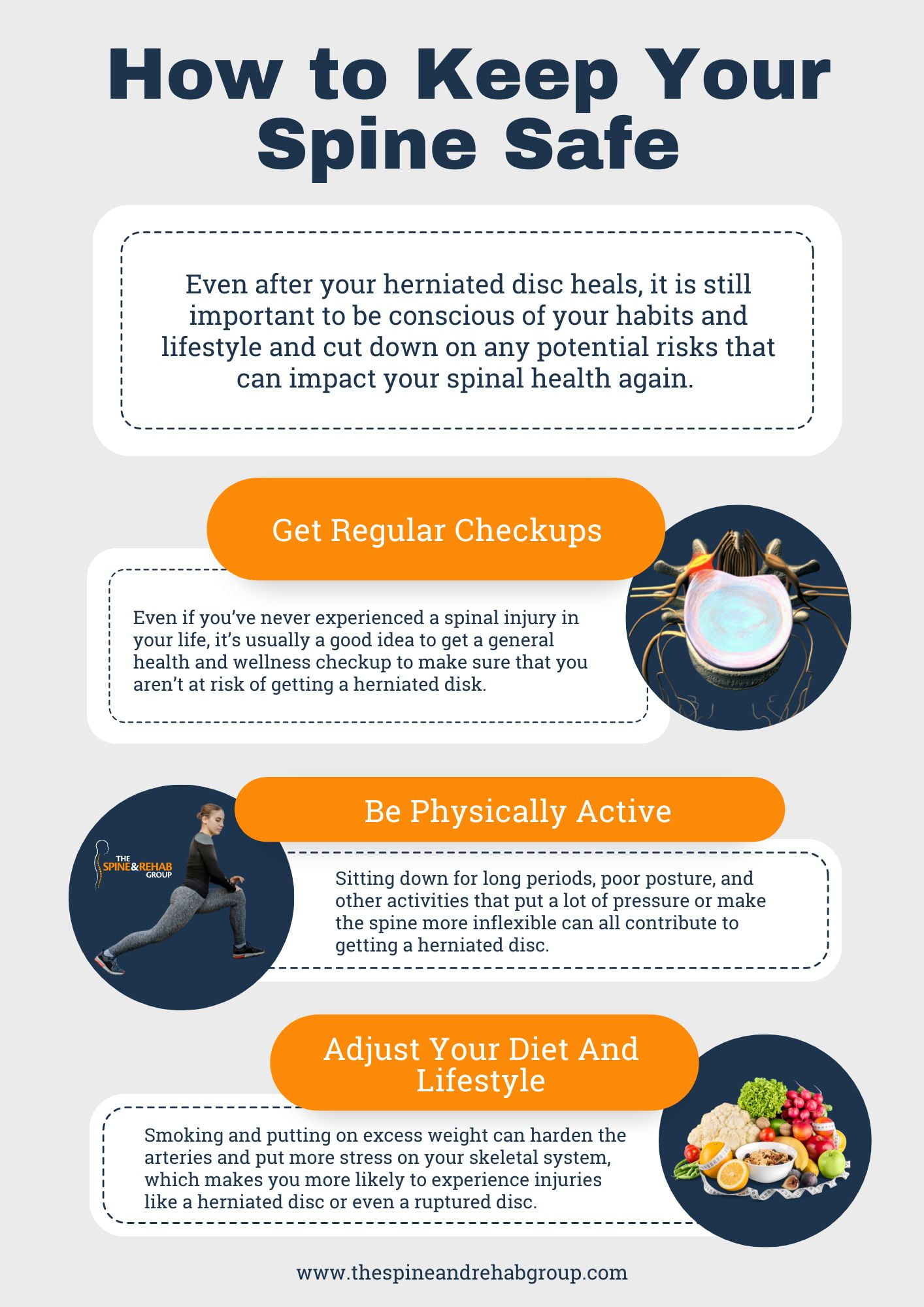
There are plenty of pain management options for a herniated disk, but for the best results, patients should always consult a professional about their disc herniation. Not only will this relieve some of the more acute symptoms like neck pain, but it can also prevent chronic pain from becoming unmanageable during recovery.
At The Spine And Rehab Group, we believe in providing our patients with the best treatments possible to keep their spines healthy. We personalize your herniated disc treatment, managing concerns like lower back pain and knee pain without the need for surgical treatment. If you have a spinal symptom or any type of disc problem that you want to be examined, schedule a consultation at one of our clinics today.
